MLNLP 2025 Speakers
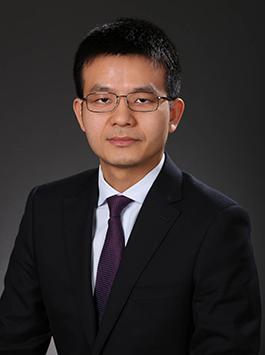
Keynote Speaker I
Assoc. Prof. Jiliang Wang, Tsinghua University, China
Wang Jiliang, the associate professor and the doctoral supervisor at the School of Software at Tsinghua University, is a recipient of the National Natural Science Foundation of China’s Excellent Young Scientists Fund. He graduated from the Department of Computer Science and Engineering, Hong Kong University of Science and Technology (HKUST) in 2011, where he obtained his Ph.D. degree. Dr. Wang Jiliang’s research focuses on the integration of the Internet of Things (IoT) and artificial intelligence (AI), mobile networks, wireless communication, and sensor networks. In 2023, he was awarded the “CCF Youth Science and Technology Award” by the China Computer Federation (CCF) for his outstanding contributions to the theory and technology of weak-signal, high-concurrency transmission in IoT.
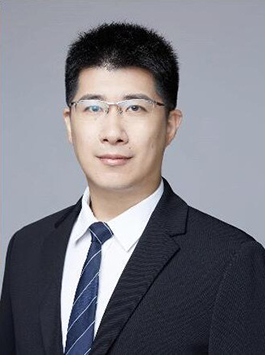
Keynote Speaker II
Assoc. Prof. Chenren Xu, Peking University, China
Xu Chenren, a tenured associate professor under the “Boya Young Fellow” program at the Department of Computer Science and Technology of Peking University, also serves as Assistant Dean of the School of Computer Science, Director of the Software-Hardware Co-Design Architecture (SOAR) Laboratory, and Deputy Director of the Institute of Networking and High-Performance Computing. He earned his Ph.D. from Rutgers University in the United States in 2014 and previously held positions as a postdoctoral researcher at Carnegie Mellon University, a visiting professor at Keio University, and a visiting scholar at AT&T Shannon Laboratory and Microsoft Research. Dr. Xu Chenren's research focuses on embodied intelligent IoT, multimodal sensing-enabled scientific and engineering intelligence, IoT, mobile internet, edge-cloud computing, and their applications in comprehensive post-5G mobile sensing and connectivity scenarios (including transportation, healthcare, and logistics). He has led projects such as the National Natural Science Foundation of China's Excellent Young Scientists Fund/Joint Fund and topics under the National Key R&D Program. His research on high-performance mobile IoT sensing and connectivity systems has earned him the 2025 CCF Technology Invention Award (First Prize), the MobiSys'25 Best Paper Award, the Damo Academy Young Fellow Award, Huawei's Top Ten Inventions, and the Okawa Foundation Research Award. These achievements have been widely deployed in Huawei's HarmonyOS devices and Alibaba's logistics systems.
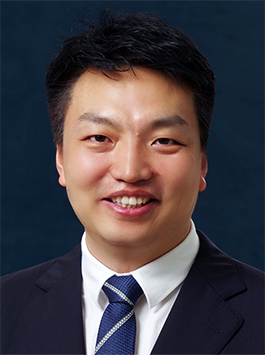
Keynote Speaker III
Prof. Hongzi Zhu, Shanghai Jiao Tong University, China
Zhu Hongzi, a professor at the School of Computer Science, Shanghai Jiao Tong University, received his Ph.D. in Computer Science from Shanghai Jiao Tong University in 2009. From March 2010 to March 2011, he worked as a postdoctoral researcher in the Department of Electrical and Computer Engineering at the University of Waterloo, Canada, where he joined the Broadband Communications Research Group and collaborated with Professor Sherman Shen and Professor Sagar Naik. His research interests cover the Internet of Things (IoT), trustworthy artificial intelligence, wireless communications, and mobile computing, with a particular focus on vehicular networks, mobile sensing, and smart device applications. In 2018, he was honored with the Chang Jiang Scholars Program - Young Scholar Award by the Ministry of Education. In the same year, he also received the Shanghai Jiao Tong University "Morning Star Young Scholar Award" (Category A).
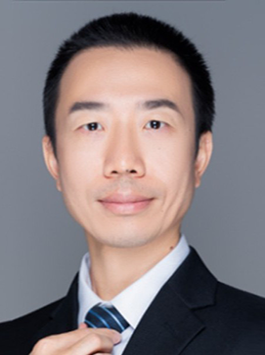
Keynote Speaker IV
Prof. Tian Wang, Beijing Normal University, Zhuhai, China
Wang Tian, a tenured professor and doctoral supervisor at Beijing Normal University, is an outstanding young scholar. He serves as the Director of the Ministry of Education’s Engineering Research Center for “Big Data Cloud-Edge Intelligent Collaboration,” leads a key national research and development project under the Ministry of Science and Technology. He has been consecutively listed in the global top 2% of most-cited scientists (career-long impact) for five years, ranked among the top 0.05% of scientists by ScholarGPS, and included in Beijing Normal University's Leading Talent Cultivation Program. Professor Wang Tian’s research focuses on the Internet of Things (IoT), artificial intelligence, edge computing, and large-small model collaboration. He pioneered one of China’s earliest national research projects on fog computing/edge computing. In recent years, he has dedicated efforts to translating theoretical research on edge intelligence into practical applications. Additionally, he holds multiple academic roles, including Vice Chair of the ACM ZhuhaiBranch, Standing Committee Member of the Youth Committee on the Internet of Things under the Chinese Institute of Electronics, Distinguished Member of the China Computer Federation (CCF), Standing Committee Member of the CCF Technical Committee on Networking and Data Communications, Member of the CCF Technical Committee on the Internet of Things, and Executive Committee Member of the Zhuhai Branch of CCF.
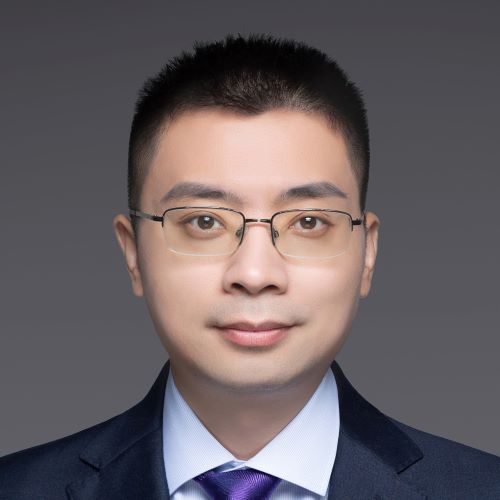
Keynote Speaker V
Prof. Wei Gong, University of Science and Technology of China, China
Gong Wei, a professor at the University of Science and Technology of China and a National Distinguished Young Expert. He has long been engaged in research on IoT architecture, technology, and systems. His academic reports cover the application exploration of passive IoT in fields such as healthcare and the digital economy, and his research achievements are of great value for promoting the construction of the new-generation “Internet of Everything” system. His main research directions include IoT architecture, edge computing, passive transmission technology, and the construction of the new-generation “Internet of Everything” system. He proposed the integrated architecture of “sensing-computing-transmission-cognition”, which solves the energy supply problem of passive nodes through efficient collection and conversion of multiple energy sources, enabling accurate sensing of biological information and long-term interaction of devices. In 2023, Professor Gong launched Apollo, the world’s first passive sweat sensing system. This system adopts an integrated architecture to realize multi-biological indicator monitoring and breaks through the barriers of medical applications. He also developed the DanBlue system, which uses multi-frequency Bluetooth signals as carriers to improve compatibility with commercial devices and promote the development of passive Bluetooth communication. Professor Gong has published more than 200 papers, with his major works published in international top conferences and journals such as ACM MobiCom and IEEE/ACM ToN. He has won more than ten Best Paper Awards at international renowned conferences including IEEE GlobeCom, HPCC, and DCOSS. Regarding projects and honors, Professor Gong presides over major and key projects of the National Natural Science Foundation of China, as well as projects under the 973 Program and 863 Program. In May 2022, he was selected as an expert for scientific and technological project evaluation.